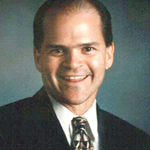A Cure for the Struggling Student
Does this scenario sounds familiar? Your bright child is underachieving at school. Homework is a struggle and he doesn’t seem to try.
He doesn’t remember what he has read. His handwriting is sloppy, and he’s a poor speller.
Worse, he just seems to hate school.
For years, Dr. Rick Graebe, a behavioral optometrist in Versailles, has heard these complaints from parents.
“They are describing the symptoms. We want to discover the causes of this behavior,” Dr. Graebe said.
Often, the problem lies with the child’s visual system, which is more than just eyesight. Reading an eye chart is only one part of the visual system.
To succeed at school, a student needs a well functioning visual system, especially because up to 85% of schoolwork is taught visually.
In order to read well, a child’s eyes need to be able to focus, point accurately and work in tandem as they track across the page.
In addition, the visual system must integrate with the body’s other senses, and the brain must perceive and process the information fluidly.
When you read well, it’s like a movie going on in your head.
And all of these developmental skills are learned. If inefficiencies in the visual system develop, a child will fall behind in school.
For years, Dr. Graebe has seen struggling students transformed by Vision Therapy, which is a kind of physical therapy for the eyes, brain and body.
Treatment follows testing that isolates and evaluates necessary reading skills such as eye pointing and tracking, and processing efficiency.
After 30 weeks of treatment, students regularly report a gain of three years in the classroom.
And the treatment is fun. Children play pencil and puzzle games, they bounce and handle balls, walk on balance beams and perform other activities that involve balance.
“It’s like the movie ‘Karate Kid,’” Dr. Graebe said. “Kids do exercises that seem to have nothing to do with reading and then they say, ‘Hey, I’m reading better.'”
Vision Therapy works differently from tutoring because it improves the underlying skills necessary for good reading skills.
Dr. Graebe likens trying to succeed with an inefficient visual system to a child trying to run with 20-pound weights on his ankles. Unless, those weights are removed, the student will eventually fall behind.
“The fact that we can help children reach their potential is why I get up in the morning,” Dr. Graebe said.
“Other patients are sending us people from all over because we are getting results they can’t get anywhere else.”

